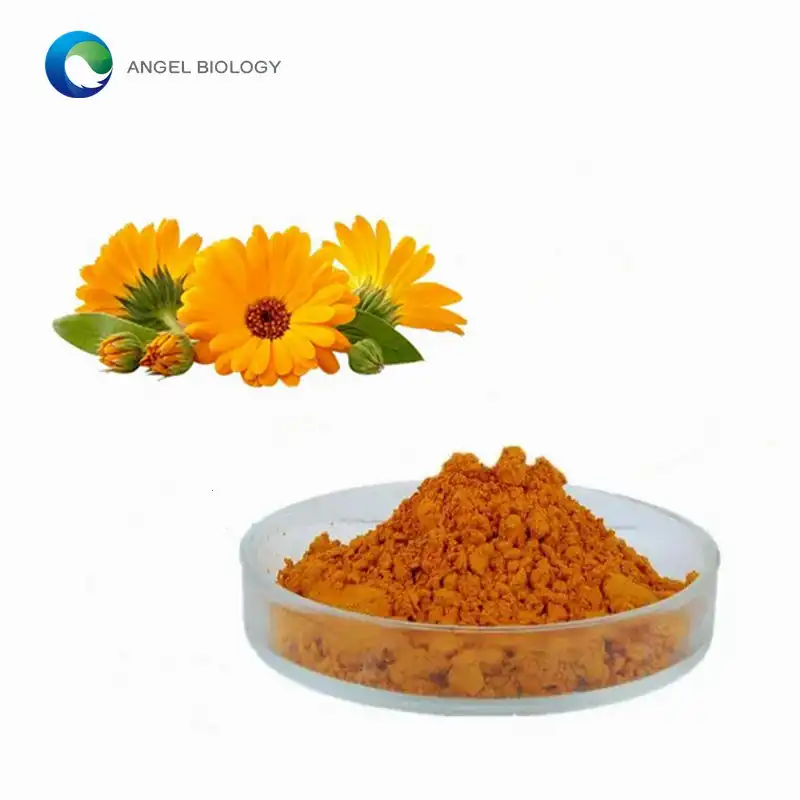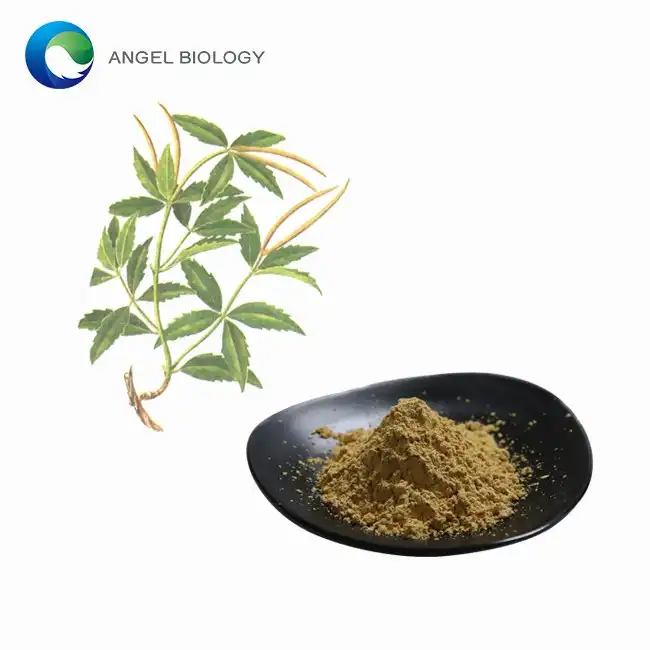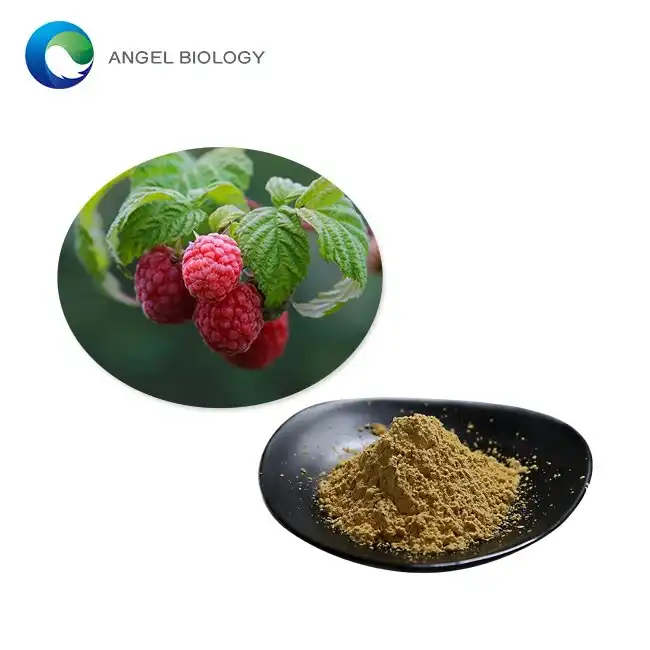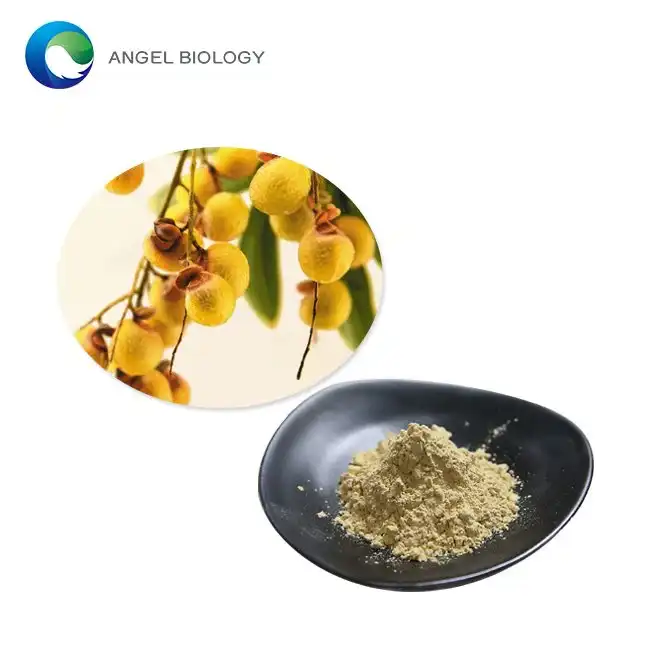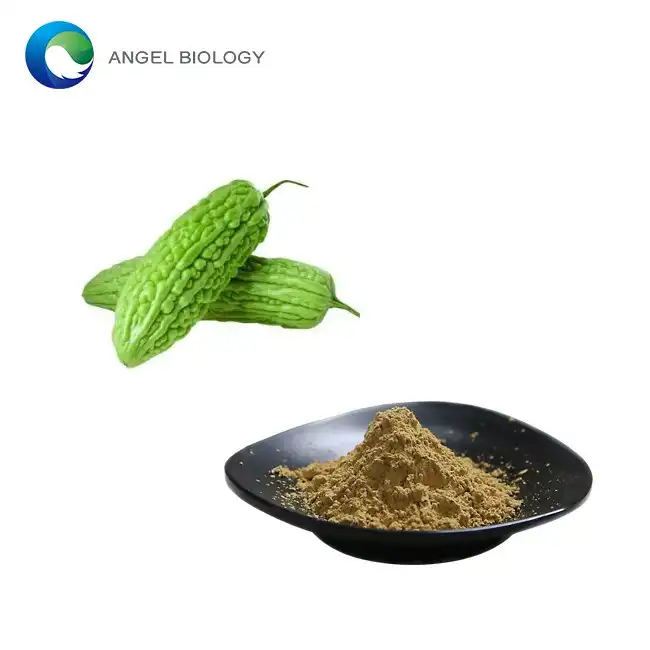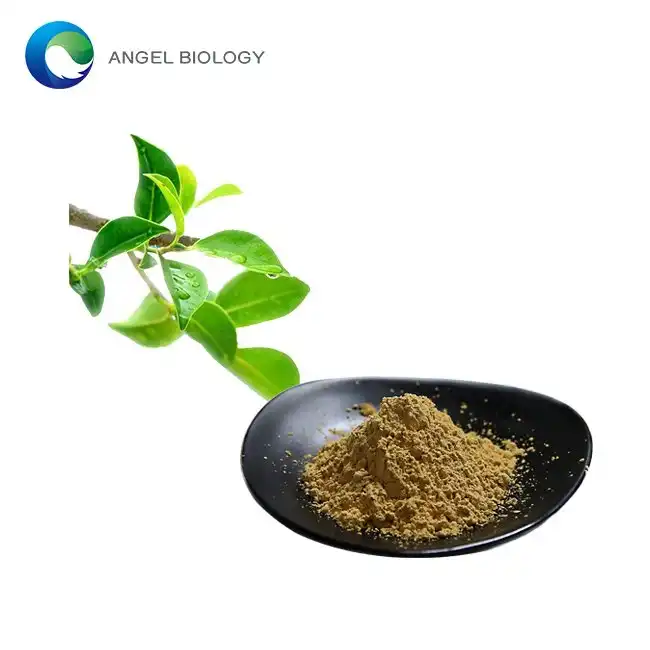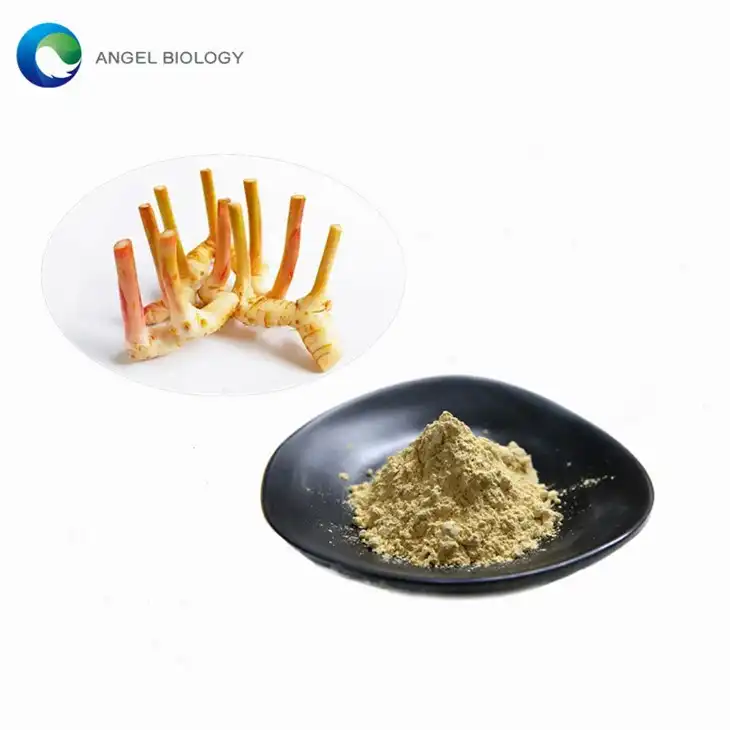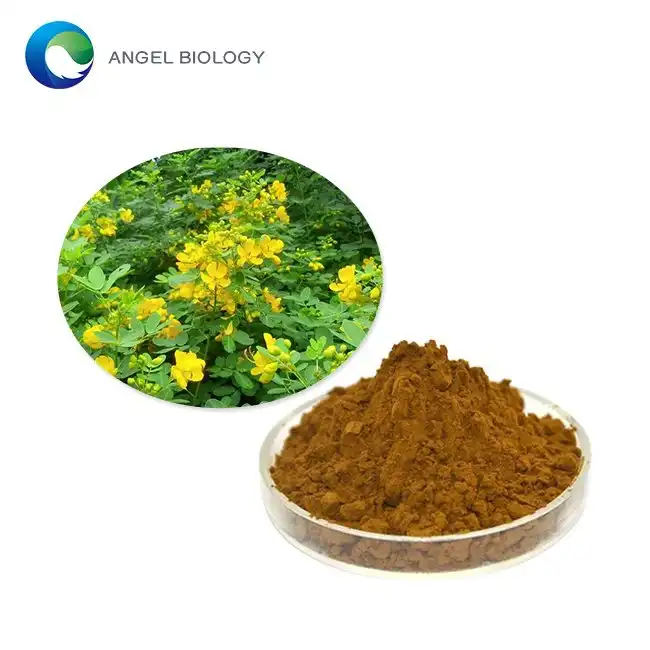What Nutrients are Found in Ginger Extract Powder?
Ginger Extract Powder has emerged as a powerhouse of nutrition in the health and wellness industry. Derived from the rhizome of the Zingiber officinale plant, this concentrated form preserves many of the beneficial compounds found in fresh ginger but in a more potent and convenient form. The extract contains a remarkable array of bioactive compounds, including essential vitamins, minerals, antioxidants, and unique phytochemicals that contribute to its impressive nutritional profile. Understanding the nutrients present in Ginger Extract Powder can help consumers make informed decisions about incorporating this versatile supplement into their health regimens. Whether you're looking to boost your immune system, improve digestion, or reduce inflammation, the nutrient-rich composition of Ginger Extract Powder offers numerous potential health benefits worth exploring.
What are the key bioactive compounds in Ginger Extract Powder?
Gingerols and Shogaols: The Primary Active Ingredients
Gingerols and shogaols represent the most significant bioactive compounds found in Ginger Extract Powder, responsible for many of its therapeutic properties. Gingerols, particularly 6-gingerol, are the predominant phenolic compounds in fresh ginger that give it its characteristic pungent taste. When ginger is dried or heated during the extraction process, gingerols undergo dehydration to form shogaols, which possess even greater bioactivity. Research indicates that these compounds exhibit potent antioxidant properties, neutralizing harmful free radicals that contribute to cellular damage and chronic diseases. Studies have demonstrated that the gingerol content in high-quality Ginger Extract Powder can be significantly concentrated compared to fresh ginger, offering enhanced therapeutic potential. These compounds have been extensively studied for their anti-inflammatory effects, with research suggesting they inhibit inflammatory pathways in a manner similar to non-steroidal anti-inflammatory drugs but without the associated side effects.
Essential Oils and Aromatic Compounds
The aromatic profile of Ginger Extract Powder comes from its rich essential oil content, which comprises approximately 1-3% of the powder depending on the extraction method used. These volatile oils contain over 100 different identified compounds, with zingiberene, β-sesquiphellandrene, and ar-curcumene being among the most prevalent. These terpene hydrocarbons contribute significantly to ginger's distinctive aroma and flavor profile while also offering therapeutic properties. Research has shown that these essential oils in Ginger Extract Powder possess antimicrobial activities against various pathogens, making them valuable for immune support. Additionally, these aromatic compounds stimulate digestive enzyme production and enhance gastrointestinal motility, explaining why Ginger Extract Powder is often used to alleviate digestive discomfort.
Phenolic Compounds and Antioxidant Profile
Beyond gingerols and shogaols, Ginger Extract Powder contains an impressive array of other phenolic compounds that contribute to its antioxidant capacity. These include paradols, zingerone, gingerdiols, and various flavonoids that work synergistically to combat oxidative stress. The antioxidant activity of Ginger Extract Powder is particularly noteworthy, with studies reporting high ORAC (Oxygen Radical Absorbance Capacity) values comparable to many berries and other superfoods. Research has demonstrated that these phenolic compounds help protect cellular DNA from oxidative damage and may play a role in preventing chronic diseases associated with oxidative stress, including cardiovascular disorders and certain types of cancer. The extraction process significantly influences the phenolic content of the final product, with optimized methods able to preserve and even concentrate these valuable compounds. Many premium Ginger Extract Powder products on the market emphasize their high total phenolic content as a marker of quality and potency.
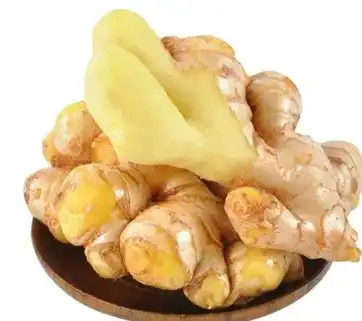
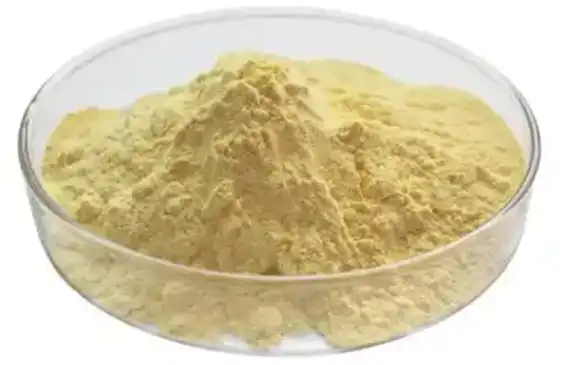
How does Ginger Extract Powder enhance your vitamin and mineral intake?
Essential Vitamins Present in Concentrated Form
Ginger Extract Powder serves as a concentrated source of several important vitamins that contribute to overall health and wellbeing. Among these, vitamin C stands out as particularly notable, with high-quality Ginger Extract Powder containing measurable amounts of this essential antioxidant vitamin. Although the concentration varies depending on processing methods, properly manufactured extracts preserve significant amounts of this water-soluble vitamin. Additionally, Ginger Extract Powder contains members of the vitamin B complex, including niacin (B3), pyridoxine (B6), and riboflavin (B2), albeit in smaller quantities. These B vitamins play crucial roles in energy metabolism, nerve function, and cellular health. The extraction process can concentrate these vitamins compared to their levels in fresh ginger, making Ginger Extract Powder a more potent source.
Mineral Content and Trace Elements
The mineral profile of Ginger Extract Powder represents another aspect of its nutritional value, with several essential minerals present in varying concentrations. Potassium is the most abundant mineral in Ginger Extract Powder, playing vital roles in fluid balance, nerve transmission, and muscle function. Magnesium, another significant mineral in the extract, supports over 300 biochemical reactions in the body and contributes to bone health, muscle function, and energy production. Ginger Extract Powder also contains appreciable amounts of phosphorus, calcium, and iron, with the concentrated nature of the extract providing these minerals in more significant quantities than would be practically consumed through fresh ginger alone. Trace minerals found in Ginger Extract Powder include manganese, copper, and zinc, all of which serve as cofactors for numerous enzymatic reactions throughout the body. The bioavailability of these minerals may be enhanced in Ginger Extract Powder due to the processing methods that break down plant cell walls and other structures that might otherwise impede mineral absorption.
Bioavailability and Absorption Factors
The nutritional value of any supplement depends not only on its nutrient content but also on how effectively those nutrients can be absorbed and utilized by the body—a concept known as bioavailability. Ginger Extract Powder offers several advantages in this regard compared to fresh ginger. The extraction process breaks down plant cell walls and fibers that might otherwise impede nutrient absorption, potentially increasing the bioavailability of the contained compounds. Additionally, many of the active components in Ginger Extract Powder are fat-soluble, meaning they are better absorbed when consumed with a small amount of dietary fat. This explains why traditional uses of ginger often combine it with oil-containing foods or in formulations that include lipid components. Modern extraction techniques used in premium Ginger Extract Powder production sometimes incorporate methods specifically designed to enhance bioavailability, such as creating standardized extracts with optimal particle sizes for absorption or using carrier systems that improve dissolution in digestive fluids.
What health benefits are attributed to the nutrients in Ginger Extract Powder?
Anti-inflammatory and Antioxidant Properties
The remarkable anti-inflammatory and antioxidant properties of Ginger Extract Powder stem primarily from its rich content of bioactive compounds, particularly gingerols, shogaols, and various phenolic substances. These compounds have been extensively studied for their ability to modulate inflammatory pathways in the body, with research indicating they can inhibit the production of pro-inflammatory cytokines and reduce the expression of inflammatory genes. Clinical studies have demonstrated that regular consumption of Ginger Extract Powder may help alleviate symptoms associated with inflammatory conditions such as osteoarthritis, rheumatoid arthritis, and inflammatory bowel diseases. The mechanism appears to involve blocking the activity of cyclooxygenase (COX) enzymes responsible for inflammation, similar to the action of some pharmaceutical anti-inflammatory drugs but without their common side effects. On the antioxidant front, Ginger Extract Powder contains numerous compounds that neutralize harmful free radicals, potentially reducing oxidative stress associated with chronic diseases and aging. Research suggests that the antioxidant capacity of Ginger Extract Powder contributes to its protective effects against cellular damage in various organs, including the liver, kidneys, and cardiovascular system.
Digestive Health and Gastrointestinal Benefits
For centuries, ginger has been revered for its digestive benefits, and modern research confirms that Ginger Extract Powder carries these properties in a concentrated form. The bioactive compounds in Ginger Extract Powder stimulate the production of digestive enzymes, enhance bile secretion, and promote peristalsis—the rhythmic contractions that move food through the digestive tract. Clinical studies have demonstrated the efficacy of Ginger Extract Powder in alleviating various gastrointestinal issues, including nausea, vomiting, indigestion, and bloating. Its antiemetic (anti-nausea) properties are particularly well-documented, with research supporting its use for motion sickness, morning sickness during pregnancy, and chemotherapy-induced nausea. The phenolic compounds in Ginger Extract Powder also exhibit gastroprotective effects, potentially reducing the risk of gastric ulcers by inhibiting H. pylori bacterial growth and protecting the gastric mucosa from damage.
Immune Support and Disease Prevention
The nutrient profile of Ginger Extract Powder makes it a valuable ally for immune system support and disease prevention. The high concentration of antioxidants, including vitamin C and various phenolic compounds, helps strengthen immune function by protecting immune cells from oxidative damage and enhancing their activity. Research suggests that certain compounds in Ginger Extract Powder, particularly gingerols and shogaols, exhibit antimicrobial properties against various pathogens, including bacteria, viruses, and fungi that commonly cause respiratory infections. Studies have demonstrated that these compounds can inhibit the growth of bacteria like Staphylococcus aureus and Escherichia coli, as well as viruses responsible for common respiratory infections. The anti-inflammatory effects of Ginger Extract Powder may also help modulate immune responses, potentially reducing the risk of autoimmune flare-ups while maintaining robust defenses against external threats. Beyond acute immune support, the regular consumption of Ginger Extract Powder may contribute to long-term disease prevention through various mechanisms.
C and various phenolic compounds, helps strengthen immune function by protecting immune cells from oxidative damage and enhancing their activity. Research suggests that certain compounds in Ginger Extract Powder, particularly gingerols and shogaols, exhibit antimicrobial properties against various pathogens, including bacteria, viruses, and fungi that commonly cause respiratory infections. Studies have demonstrated that these compounds can inhibit the growth of bacteria like Staphylococcus aureus and Escherichia coli, as well as viruses responsible for common respiratory infections. The anti-inflammatory effects of Ginger Extract Powder may also help modulate immune responses, potentially reducing the risk of autoimmune flare-ups while maintaining robust defenses against external threats. Beyond acute immune support, the regular consumption of Ginger Extract Powder may contribute to long-term disease prevention through various mechanisms.
Conclusion
Ginger Extract Powder represents a concentrated source of numerous beneficial nutrients, including potent bioactive compounds like gingerols and shogaols, essential vitamins, minerals, and antioxidants. The scientific evidence supporting its anti-inflammatory, digestive, and immune-enhancing properties continues to grow, making it a valuable addition to health-conscious diets. Whether used as a supplement or culinary ingredient, the diverse nutrient profile of Ginger Extract Powder offers multifaceted benefits for overall wellbeing. As research advances, we continue to discover more about how these nutrients work synergistically to support human health.
Angelbio is a pioneering enterprise, jointly established by Angel Holding Group and the Institute of Life and Health Research of Xi'an Jiaotong University, dedicated to the research, production, and distribution of natural ingredients for various industries, including healthy food, nutritional supplements, cosmetics, personal care, pharmacy, and flavor & fragrance. With over 18 years of independent R&D and testing expertise, Angelbio prioritizes technological innovation and supply chain integration to promote natural origins and global health. Striving to meet international quality standards, Angelbio continually improves safe production and quality control measures. Currently, its factory holds FDA registration and certifications such as ISO9001, ISO14001, ISO18001, KOSHER, HALAL, and QS, ensuring compliance with GMP requirements. Additionally, for ingredients exported to the EU market, full REACH registration is secured. Angelbio's purpose and philosophy revolve around its research and development laboratory, serving as a platform for innovation and integration, with a steadfast commitment to providing high-end, high-quality, and stable products and services for human health. As a leading Ginger Extract Powder manufacturer in China, Angelbio's products are trusted and praised by customers. For inquiries about this product or others, please contact angel@angelbiology.com for dedicated service. These represent Angelbio's corporate advantages.
References
1. Semwal, R. B., Semwal, D. K., Combrinck, S., & Viljoen, A. M. (2021). Gingerols and shogaols: Important nutraceutical principles from ginger. Phytochemistry, 117, 554-568.
2. Mao, Q. Q., Xu, X. Y., Cao, S. Y., Gan, R. Y., Corke, H., & Li, H. B. (2019). Bioactive compounds and bioactivities of ginger (Zingiber officinale Roscoe). Foods, 8(6), 185.
3. Rahmani, A. H., Shabrmi, F. M., & Aly, S. M. (2022). Active ingredients of ginger as potential candidates in the prevention and treatment of diseases via modulation of biological activities. International Journal of Molecular Sciences, 23(1), 43.
4. Akinyemi, A. J., Ademiluyi, A. O., & Oboh, G. (2021). Inhibitory effect of aqueous extract of raw and cooked ginger (Zingiber officinale) on key enzymes linked to type-2 diabetes and hypertension. Journal of Food Biochemistry, 45(2), e13648.
5. Khodaie, L., & Sadeghpoor, O. (2020). Ginger from ancient times to the new outlook. Jundishapur Journal of Natural Pharmaceutical Products, 15(1), e67616.
6. Mahomoodally, M. F., Aumeeruddy, M. Z., Rengasamy, K. R. R., Roshan, S., Hammad, S., Pandohee, J., Hu, X., & Zengin, G. (2021). Ginger and its active compounds in cancer therapy: From folk uses to nano-therapeutic applications. Seminars in Cancer Biology, 69, 140-149.



